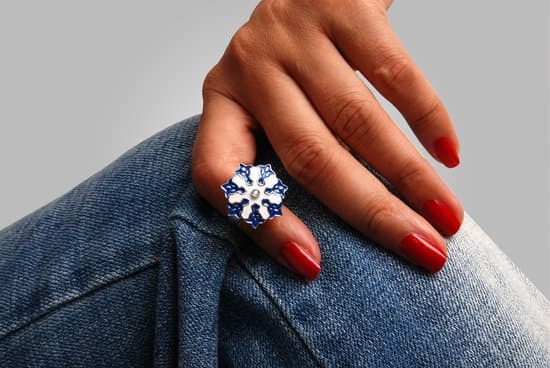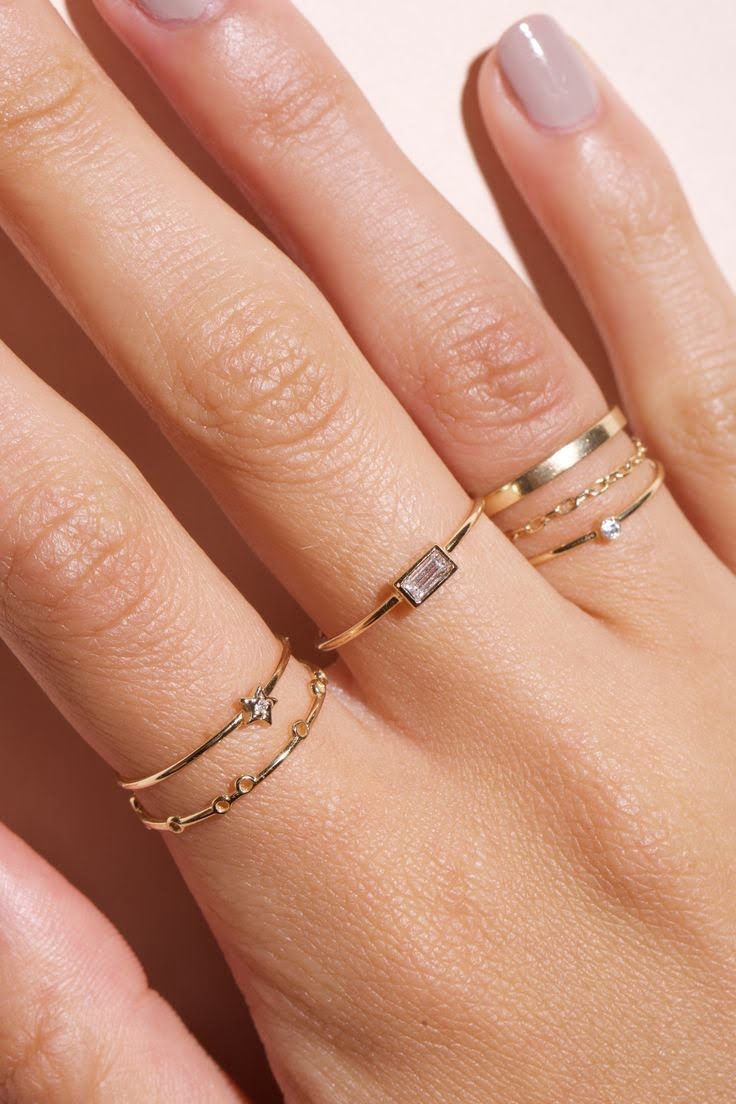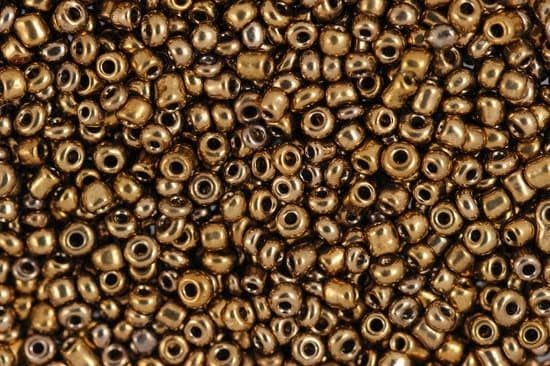Keeping your jewelry clean and well-maintained is essential for its longevity and overall appearance. Over time, jewelry can accumulate dirt, oils, and other substances that dull its shine and brilliance. However, with proper cleaning techniques, you can restore your jewelry’s original beauty and preserve its value.
Regularly cleaning your jewelry not only enhances its visual appeal but also helps prevent damage. Dirt and grime can scratch delicate surfaces or get trapped in tiny crevices, leading to wear and tear over time. By removing these impurities, you can maintain the integrity of your jewelry and extend its lifespan.
Moreover, regular cleaning allows you to identify any signs of damage or loose stones that may require professional attention. It gives you an opportunity to regularly inspect your jewelry for any potential issues and address them promptly before they worsen.
In the next sections of this article, we will explore different types of jewelry and their specific cleaning requirements. We will also delve into popular homemade cleaning solutions using items readily available in your home. Furthermore, we’ll discuss the benefits of ultrasonic cleaners in effectively removing dirt from various types of jewelry.
Stay tuned to discover the best methods for preserving the brilliance of your precious gemstones as well as tips for safely cleaning delicate or unique pieces. And finally, we will provide helpful advice on proper storage techniques and maintenance to ensure a lifetime of sparkling jewelry.
Different Types of Jewelry and Their Cleaning Requirements
When it comes to cleaning your jewelry at home, it is essential to understand that different types of materials require specific cleaning techniques to avoid damage. Here are some guidelines for cleaning various types of jewelry:
1. Gold Jewelry:
Gold is a popular choice for jewelry due to its durability and resistance to tarnish. To clean gold jewelry, you can use a mild detergent mixed with warm water. Soak the gold piece in the soapy solution for a few minutes, then gently scrub it with a soft-bristled toothbrush. Rinse thoroughly and pat dry with a soft cloth.
2. Silver Jewelry:
Silver jewelry tends to tarnish over time due to exposure to air and moisture. To remove tarnish from silver, you can create a simple paste by mixing equal parts baking soda and water. Apply the paste onto the silver using a soft cloth or sponge, then rinse thoroughly and dry with a clean cloth.
3. Gemstone Jewelry:
Gemstones like diamonds, rubies, sapphires, and emeralds require special care due to their unique characteristics. Some gemstones may be cleaned using mild detergent and warm water, while others may require professional cleaning methods. It is recommended to consult a jeweler or refer to the gemstone-specific cleaning instructions provided by reputable sources.
4. Pearl Jewelry:
Pearls are delicate gems that require gentle cleaning methods to maintain their luster. To clean pearl jewelry, you can use a soft damp cloth soaked in mild soapy water or a mixture of lukewarm water and mild shampoo. Gently wipe each pearl and then lay them flat on a clean towel to air dry.
5. Costume Jewelry:
Costume jewelry is often made with non-precious metals and synthetic gemstones that may be more susceptible to damage from intense cleaning methods or harsh chemicals. For costume jewelry, it is best to use simple cleaning solutions like mild dish soap mixed with water. Gently scrub the jewelry with a soft-bristled toothbrush and rinse thoroughly.
By understanding the specific cleaning requirements for each type of jewelry, you can ensure the longevity and beauty of your favorite pieces. Remember to always check for any special care instructions provided by the manufacturer or consult a professional if you are unsure about how to clean a particular piece.
Popular Homemade Jewelry Cleaning Solutions
Using Baking Soda
Baking soda is a versatile household item that can be used to clean various types of jewelry. To clean your jewelry using baking soda, create a paste by mixing equal parts baking soda and water. Apply the paste to your jewelry using a soft cloth or toothbrush, gently scrubbing away any dirt or tarnish. Rinse thoroughly with water and pat dry with a clean cloth.
Using Dish Soap
Dish soap is another effective homemade solution for cleaning jewelry. Fill a small bowl with warm water and add a few drops of mild dish soap. Place your jewelry in the bowl and let it soak for about 10-15 minutes. Then, use a soft toothbrush or cloth to gently scrub away any dirt or grime. Rinse well under running water and dry with a soft cloth.
Using Vinegar and Lemon Juice
Vinegar and lemon juice are acidic substances that can effectively remove tarnish from silver jewelry. For silver items, create a cleaning solution by mixing equal parts white vinegar or lemon juice with water. Soak your silver jewelry in the solution for 2-3 hours, then rinse thoroughly and dry with a soft cloth.
It’s important to note that while these homemade solutions can be effective for most types of jewelry, they should not be used on certain delicate gemstones like pearls or opals, which require specialized care. When in doubt, it’s always best to consult a professional jeweler or refer to the manufacturer’s guidelines for cleaning specific types of jewelry.
The Power of Ultrasonic Cleaners
Ultrasonic cleaners are a powerful tool for cleaning jewelry that can save time and effort. These devices use high-frequency sound waves to create tiny bubbles in a cleaning solution. The bubbles implode on the surface of the jewelry, effectively removing dirt, grime, and debris without causing any damage.
Benefits of Ultrasonic Cleaners
One of the main advantages of using ultrasonic cleaners is their effectiveness in reaching small crevices and intricate details that are difficult to clean manually. The sound waves penetrate into every nook and cranny of the jewelry, ensuring a thorough cleaning. This is particularly beneficial for items like rings with gemstones or watches with intricate bracelets.
Another benefit is the convenience they offer. Ultrasonic cleaners are easy to use and require minimal manual effort. You simply need to place the jewelry in the machine, add water or a specialized cleaning solution, and turn on the device. It does all the work for you, saving time and energy.
However, it’s important to note that not all jewelry is suitable for ultrasonic cleaning. Delicate pieces or those with loose stones should be avoided as they may get damaged or become dislodged during the process. Additionally, certain gemstones like opals or pearls should not be cleaned using an ultrasonic cleaner as it can weaken their structure or cause discoloration.
Precautions when Using Ultrasonic Cleaners
While ultrasonic cleaners are generally safe to use, there are some precautions you should take to ensure the longevity of your jewelry:
- Check for loose stones: Before placing your jewelry in an ultrasonic cleaner, inspect it for any loose stones. If you notice any, refrain from using the cleaner as it may cause them to become dislodged.
- Use appropriate solutions: Certain types of jewelry may require specialized cleaning solutions rather than just water. Research and choose a compatible solution based on the type of jewelry you are cleaning.
- Avoid fragile or brittle materials: Ultrasonic cleaners are not suitable for delicate materials like costume jewelry, ivory, or wood. Avoid cleaning such items in the ultrasonic cleaner to prevent damage.
- Limit cleaning time: Do not leave your jewelry in the ultrasonic cleaner for longer than necessary. Excessive exposure to the sound waves can cause damage to certain metals or gemstones.
Taking Care of Precious Gemstones
Gemstones like diamonds, rubies, sapphires, and emeralds are prized for their beauty and rarity. To ensure that these precious gemstones maintain their brilliance and sparkle, it is important to take special care when cleaning them.
Each type of gemstone has its own specific characteristics and cleaning requirements. For example, diamonds are the hardest gemstone and can withstand more rigorous cleaning methods. However, softer gemstones like pearls and opals require much gentler cleaning techniques to avoid any damage.
One common method to clean precious gemstones is to create a mild soapy solution using warm water and a small amount of gentle dish soap. Submerge the jewelry in the solution for a few minutes to loosen any dirt or debris. Gently scrub the gemstones with a soft-bristled toothbrush or a specialized jewelry brush to remove any remaining residue. Rinse the jewelry thoroughly under running water to ensure all soap residue is removed.
Another option for cleaning precious gemstones is using an ammonia-based solution. Mix equal parts of cool water and household ammonia in a bowl. Place the jewelry in the mixture for around 15 minutes, then gently scrub with a soft brush. Rinse thoroughly under running water and pat dry with a soft cloth.
It is important to note that certain gemstones may require more specific cleaning methods due to their unique properties. For example, emeralds are known to be fragile and may be damaged by heat or sudden changes in temperature. Hence, it is best to avoid ultrasonic cleaners or steamers when cleaning emerald jewelry.
| Gemstone | Recommended Cleaning Method |
|---|---|
| Diamond | Mild soapy solution or ammonia-based solution |
| Ruby | Mild soapy solution or ammonia-based solution |
| Sapphire | Mild soapy solution or ammonia-based solution |
| Emerald | Mild soapy solution (avoid ultrasonic cleaners or steamers) |
By understanding the specific needs of each gemstone and following the appropriate cleaning methods, you can ensure that your precious gemstone jewelry remains in excellent condition for years to come. Remember to always handle gemstone jewelry with care and seek professional assistance if you are unsure about how to clean a particular piece.
Cleaning Delicate and Unique Jewelry Pieces
Delicate and unique jewelry pieces often require special care and attention when it comes to cleaning. These pieces can include antique jewelry, delicate chains, and vintage pieces that may have intricate designs or be made from fragile materials. Cleaning these types of jewelry requires a gentle touch and specific techniques to avoid causing damage.
When cleaning delicate jewelry, it is important to start by assessing the piece and its condition. Take note of any loose stones, fragile components, or areas that may be vulnerable to damage. If the piece has delicate gemstones or pearls, it is best to avoid using any harsh chemicals or abrasive materials that could potentially harm them.
One effective method for cleaning delicate jewelry is by using a soft toothbrush and mild soap or dish detergent. Gently brush the piece in a circular motion to remove any dirt or buildup. Be cautious not to apply too much pressure or scrub vigorously as this can loosen stones or cause damage.
For antique jewelry or pieces with intricate designs, it may be best to consult with a professional jeweler who specializes in cleaning and restoring vintage items. They will have the expertise and appropriate tools to safely clean these unique pieces without causing harm.
In addition to regular cleaning, delicaté jewelry should also be stored properly. Separate each piece with soft fabric pouches or individual compartments in a quality jewelry box to prevent tangling, scratching, or other forms of damage. Avoid storing delicate jewelry near extreme temperatures, moisture, or direct sunlight as these conditions can deteriorate the materials over time.
By following proper cleaning techniques and storing delicate jewelry carefully, you can ensure that your unique pieces remain in pristine condition for years to come. Taking extra precautions with these special items will help preserve their beauty and extend their lifespan so you can continue enjoying them for generations.
Safety Precautions
When it comes to cleaning jewelry at home, it is important to exercise caution and follow certain safety precautions to avoid causing damage. The following section will outline the potential risks involved and common mistakes that should be avoided.
- Avoid Using Harsh Chemicals: Harsh chemicals such as bleach, ammonia, or acetone should never be used to clean jewelry at home. These chemicals can erode or discolor metals, damage gemstones, and weaken settings. Instead, opt for milder cleaning solutions specifically formulated for jewelry or homemade solutions using gentle ingredients like dish soap or baking soda.
- Do Not Use Abrasive Materials: Scrubbing your jewelry with abrasive materials such as toothbrushes with hard bristles or rough cloths can scratch the surface and remove delicate coatings or finishes. It is best to use soft-bristled brushes or lint-free microfiber cloths for gently wiping away dirt and grime.
- Avoid Excessive Force: When cleaning your jewelry, avoid applying excessive force or pressure on fragile parts like prongs, clasps, or chains. Pulling or tugging too forcefully can cause these components to bend, break, or become misaligned. Take extra care when brushing around intricate designs or details.
- Don’t Soak Jewelry Indefinitely: While soaking your jewelry in a cleaning solution can help loosen dirt and debris, it is important not to leave it submerged for too long. Prolonged soaking can cause discoloration of certain metals or damage gemstones if they are sensitive to moisture. Follow the recommended guidelines for soaking times and rinse thoroughly afterward.
| Risks | Avoidance |
|---|---|
| Using harsh chemicals | Choose milder cleaning solutions formulated for jewelry |
| Using abrasive materials | Use soft-bristled brushes or lint-free microfiber cloths |
| Applying excessive force | Handle jewelry gently, especially around fragile parts |
| Soaking jewelry for too long | Follow recommended soaking times and rinse thoroughly |
By being aware of these potential dangers and avoiding common mistakes, you can ensure that your at-home jewelry cleaning process is safe and effective. Remember to always read the manufacturer’s instructions and seek professional assistance if you are unsure about how to clean a particular piece.
The Benefits of Professional Jewelry Cleaning Services
When it comes to cleaning and maintaining your jewelry, sometimes it’s best to leave it in the hands of professionals. Professional jewelry cleaning services offer several benefits that can help ensure that your precious pieces are treated with the care and expertise they deserve.
One of the key advantages of professional jewelry cleaning services is their specialized techniques and equipment. These professionals have access to tools and solutions that are specifically designed for cleaning different types of jewelry materials, such as gold, silver, gemstones, pearls, and more. They understand the unique properties of each material and know how to handle them safely and effectively. This means that they can provide a thorough and gentle clean without risking damage to your precious pieces.
In addition to their specialized techniques, professional jewelry cleaners also have the knowledge and expertise required to identify any potential issues or damage in your jewelry. They are trained to inspect each piece closely during the cleaning process, allowing them to spot loose stones, weak prongs, or other problems that may need professional attention. By catching these issues early on, they can help you prevent further damage or loss of stones through prompt repairs.
Lastly, professional jewelry cleaning services offer convenience for those who lead busy lives. Instead of spending time researching DIY cleaning methods or attempting trial-and-error methods at home, you can simply drop off your jewelry at a professional cleaner and let them take care of it for you. Many jewelers also offer additional services like polishing and restoration, which can help bring new life to older pieces or remove scratches or tarnish.
Overall, entrusting your jewelry to a professional cleaner ensures that it receives the proper care and attention it needs while saving you time and potential headaches. From their specialized techniques and equipment to their skilled expertise in identifying potential issues, professional cleaners offer invaluable benefits for keeping your precious pieces looking their best.
- Specialized techniques: Professional cleaners have access to tools and solutions designed specifically for different types of jewelry materials.
- Expertise in identifying issues: They can spot loose stones, weak prongs, or other problems that may need professional attention.
- Convenience: Professional cleaners offer a time-saving option for busy individuals who want their jewelry cleaned and maintained properly.
Proper Storage and Maintenance Tips
Keeping your jewelry clean is important, but equally vital is properly storing and maintaining it. By taking the right precautions, you can ensure that your jewelry stays in excellent condition for years to come. Here are some tips on how to store and maintain your jewelry effectively.
One essential aspect of proper storage is keeping each piece separate from others to prevent scratching or tangling. One option is to use a jewelry box with compartments or dividers to keep items organized and protected. If you don’t have a jewelry box, you can also use small fabric bags or soft pouches for individual pieces. Another tip is to avoid storing metal jewelry pieces together, as different metals can react with each other and cause damage over time.
It’s also important to protect your jewelry from moisture and humidity, as these factors can lead to tarnishing or corrosion. One effective way to prevent this is by using anti-tarnish pouches or strips that absorb moisture and protect against tarnish formation. Additionally, store your jewelry away from direct sunlight or heat sources, as excessive exposure can cause fading or warping.
Regular maintenance of your jewelry is equally crucial to its longevity. This includes periodic cleaning, inspections for loose gemstones or clasps, and professional maintenance when necessary. To keep your jewelry looking its best, gently wipe it after each wear with a soft cloth to remove any oils, lotions, or dirt that may have accumulated.
Finally, consider having your valuable or sentimental pieces professionally cleaned and inspected by a jeweler at least once a year. They have access to specialized equipment and expertise necessary for safe and thorough cleaning. A professional jeweler can also assess the condition of your jewelry, perform any necessary repairs, and provide additional advice on caring for specific pieces.
By implementing these storage and maintenance tips, you can ensure that your jewelry remains sparkling and well-preserved for generations to come.
Final Thoughts
In conclusion, regular cleaning and maintenance are essential for keeping your jewelry sparkling forever. By taking the time to clean your jewelry regularly, you can restore its shine and brilliance, enhancing its overall appearance. Furthermore, proper care and maintenance can help extend the lifespan of your jewelry, ensuring that it stays beautiful for years to come.
Throughout this article, we have discussed different types of jewelry and their specific cleaning requirements. From gold and silver to gemstones and pearls, each material requires careful attention to avoid damage during the cleaning process. We have also explored popular homemade cleaning solutions such as baking soda, dish soap, toothpaste, vinegar, and lemon juice, providing step-by-step instructions on how to use them effectively.
Additionally, we have highlighted the power of ultrasonic cleaners in removing dirt and debris from your jewelry. These devices utilize sound waves to create tiny bubbles that gently clean the surface of your jewelry without causing any harm. However, it is important to follow precautions when using ultrasonic cleaners to prevent potential damage.
When it comes to caring for precious gemstones or delicate and unique pieces of jewelry, specialized cleaning techniques are necessary. For gems like diamonds, rubies, sapphires, and emeralds, specific cleaning methods can preserve their brilliance while preventing any damage. Likewise, delicate and intricate pieces require gentle handling and appropriate cleaning techniques to maintain their beauty.
To ensure a lifetime of sparkling jewelry, it is crucial to avoid common mistakes when cleaning at home. Abrasive materials or harsh chemicals can cause irreversible damage. Instead, opt for professional jewelry cleaning services if you have expensive or sentimental pieces that require extra care. These services offer specialized techniques and equipment that can give your jewelry optimal results without risking any harm.
Finally, proper storage and maintenance play a vital role in preserving your jewelry’s condition. Regular inspections can help identify any potential issues early on while professional maintenance ensures that your valuable pieces are always in pristine condition. Utilizing specialized storage options such as jewelry boxes and anti-tarnish pouches can further protect your jewelry from dust, moisture, and tarnish.
Frequently Asked Questions
What is the best home remedy to clean jewelry?
One of the best home remedies to clean jewelry is using a mixture of mild dish soap and warm water. This solution is effective in removing dirt, grime, and oils that can accumulate on jewelry over time. You can create the cleaning solution by mixing a few drops of mild dish soap with warm water in a small bowl or container.
Gently place the jewelry in the solution and let it soak for a few minutes. Then, use a soft-bristled toothbrush to scrub away any remaining dirt or residue, paying special attention to crevices and hard-to-reach areas. Rinse the jewelry thoroughly with clean water and pat dry with a soft cloth before storing or wearing it.
Does vinegar clean jewelry?
Vinegar can indeed be used to clean jewelry effectively, particularly when dealing with tarnished metals such as silver or gold. The acidic nature of vinegar helps dissolve tarnish and restore shine to metal surfaces. To utilize vinegar as a cleaning agent, create a mixture by combining equal parts white vinegar and water in a small bowl or container.
Place the jewelry into the solution and allow it to soak for 10-15 minutes. Afterward, use a soft brush or cloth to gently rub away any remaining tarnish or dirt from the surface of the jewelry. Finally, rinse it well with water and dry thoroughly before storage or use.
Can you use hydrogen peroxide to clean jewelry?
Hydrogen peroxide can be used as an effective cleaning agent for certain types of jewelry, although caution should be exercised when using it due its bleaching properties and potential damage to certain gemstones or delicate materials. It is generally safe to use hydrogen peroxide on metals like gold or platinum that are not mixed with other metals prone to oxidation or discoloration. To clean jewelry with hydrogen peroxide, create a solution by mixing equal parts hydrogen peroxide and water in a bowl or container large enough for soaking your items.
Submerge the pieces into the mixture for around 15-20 minutes, then gently scrub them with a soft brush or cloth. Rinse the jewelry thoroughly with water and dry it completely before storing or wearing it. However, it is advisable to consult specific care guidelines for your jewelry before using hydrogen peroxide on precious gemstones, silver, or other delicate materials, as it may cause damage.

Welcome to my jewelry blog! My name is Sarah and I am the owner of this blog.
I love making jewelry and sharing my creations with others.
So whether you’re someone who loves wearing jewelry yourself or simply enjoys learning about it, be sure to check out my blog for insightful posts on everything related to this exciting topic!





